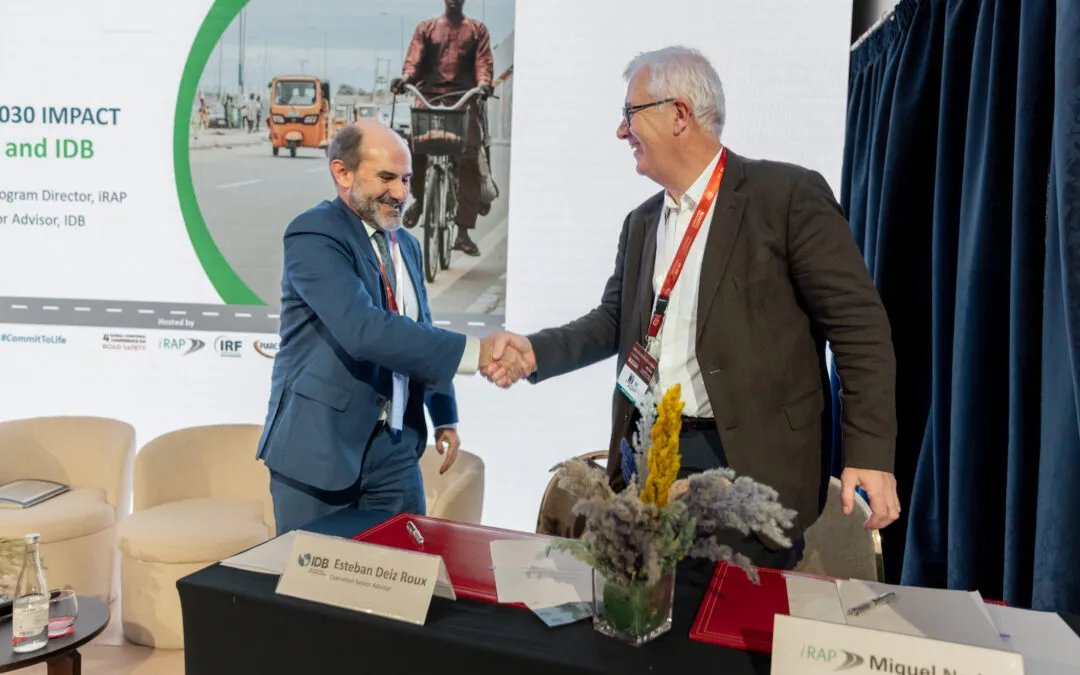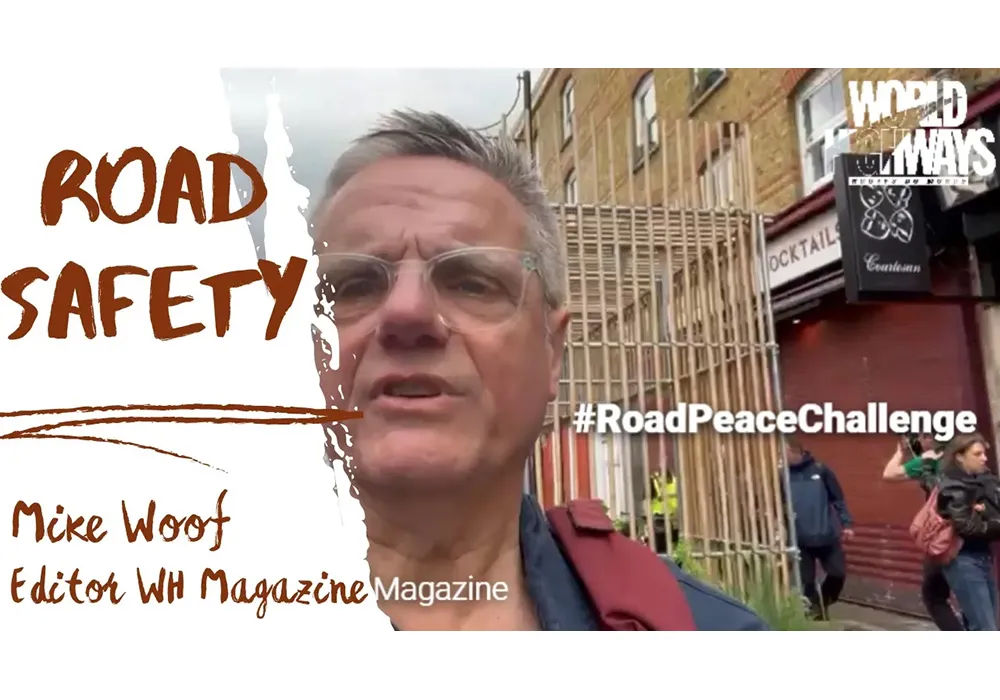Experts in health, city planning, environment and transport from Europe and the United States, including several local authorities, stressed how active travel can drive urban economic growth and save public health funds during a recent prestigious workshop event in Brussels, Belgium. Integrating health aspects in transportation planning was the focus of The Polis Environment & Health working group meeting at the European Economic and Social committee on 30th October. The event gathered experts from organisa
November 7, 2012
Read time: 3 mins
Experts in health, city planning, environment and transport from Europe and the United States, including several local authorities, stressed how active travel can drive urban economic growth and save public health funds during a recent prestigious workshop event in Brussels, Belgium.
Integrating health aspects in transportation planning was the focus of The Polis Environment & Health working group meeting at the3413 European Economic and Social Committee on 30th October. The event gathered experts from organisations such as the 3263 World Health Organisation (WHO); the French Ministry of Sustainable Development; French Centre for the Study of Urban Planning, Transport and Public Facilities (CERTU); the Italian Healthy Cities Network; London European Partnership for Transport (LEPT); Volpe National Transportation Systems Center at the 2364 US Department of Transportation; and the Healthy Communities Nashville Area Metropolitan Planning Organization.
Experts representing the cities of Brussels, Paris and London presented their policies and implemented measures. These included low emission zones, community travel plans, incentives for walking and cycling, disincentive for the motorized traffic, and awareness raising and promotion campaigns. Workshop attendees agreed on a shared goal: to reduce the use of the private car, improve air quality, and accommodate more pedestrians and cyclists.
"Cities must take action now if they want to obtain substantial benefits in public health and drive a positive growth in the job market and public financing," said Paul Curtis from LEPT.
The workshop heard how health benefits from increased physical activity in people’s daily lives (e.g. walking and cycling to work and school) not only translate into individual gains but benefit the entire community. The WHO's HEAT tool was said to be useful to help in measuring the health benefits for increased physical activity among the population and support decision making processes.
City of Modena, Italy, is partner in PHAN: a WHO project to promote networking and action for healthy and equitable environments for physical activity. “A €40,000 spending in completing our cycling network will have a return on investment of €414,000 in financial savings in public health over a period of 10 years," said Ms Simona Arletti, city councilor in charge for health and president of Italian Healthy City Network. She added: “Quantifying public health gains is crucial to justify decisions before my city planning department and demonstrate the importance of promoting active travel among citizens.”
"We should have a holistic approach and integrate all modes of transportation while planning mobility in our cities," said Laurent Jardinier from CERTU. "PDUs, the French equivalent of Sustainable Urban Mobility Plans, aims to preserve health conditions of inhabitants. This is quite an innovative approach, yet transport and health policies need more integration."
While presenting the U.S. Policy Framework, William Lyons, of the Volpe Institute, said the Institute was working "toward comprehensive intermodal transportation planning with all institutions following the 3 C Process: Comprehensive, Coordinated, Continuous” with the aim to overcome fragmented decision-making.
European cities were said during the workshop to be able to rely on a rich set of tools and planning approaches to achieve better quality of life in cities by promoting healthier communities. “It's a matter of conveying a positive message to all political actors and institutions starting from the EU level" said Polis director Sylvain Haon. He added: “WHO and The PEP (the Transport, Health and Environment Pan-European Partnership) are preparing their fourth high-level meeting in Paris at the Transport Research Arena in April 2014. The platform holds the potential for inter-institutional cooperation at all levels.”
Integrating health aspects in transportation planning was the focus of The Polis Environment & Health working group meeting at the
Experts representing the cities of Brussels, Paris and London presented their policies and implemented measures. These included low emission zones, community travel plans, incentives for walking and cycling, disincentive for the motorized traffic, and awareness raising and promotion campaigns. Workshop attendees agreed on a shared goal: to reduce the use of the private car, improve air quality, and accommodate more pedestrians and cyclists.
"Cities must take action now if they want to obtain substantial benefits in public health and drive a positive growth in the job market and public financing," said Paul Curtis from LEPT.
The workshop heard how health benefits from increased physical activity in people’s daily lives (e.g. walking and cycling to work and school) not only translate into individual gains but benefit the entire community. The WHO's HEAT tool was said to be useful to help in measuring the health benefits for increased physical activity among the population and support decision making processes.
City of Modena, Italy, is partner in PHAN: a WHO project to promote networking and action for healthy and equitable environments for physical activity. “A €40,000 spending in completing our cycling network will have a return on investment of €414,000 in financial savings in public health over a period of 10 years," said Ms Simona Arletti, city councilor in charge for health and president of Italian Healthy City Network. She added: “Quantifying public health gains is crucial to justify decisions before my city planning department and demonstrate the importance of promoting active travel among citizens.”
"We should have a holistic approach and integrate all modes of transportation while planning mobility in our cities," said Laurent Jardinier from CERTU. "PDUs, the French equivalent of Sustainable Urban Mobility Plans, aims to preserve health conditions of inhabitants. This is quite an innovative approach, yet transport and health policies need more integration."
While presenting the U.S. Policy Framework, William Lyons, of the Volpe Institute, said the Institute was working "toward comprehensive intermodal transportation planning with all institutions following the 3 C Process: Comprehensive, Coordinated, Continuous” with the aim to overcome fragmented decision-making.
European cities were said during the workshop to be able to rely on a rich set of tools and planning approaches to achieve better quality of life in cities by promoting healthier communities. “It's a matter of conveying a positive message to all political actors and institutions starting from the EU level" said Polis director Sylvain Haon. He added: “WHO and The PEP (the Transport, Health and Environment Pan-European Partnership) are preparing their fourth high-level meeting in Paris at the Transport Research Arena in April 2014. The platform holds the potential for inter-institutional cooperation at all levels.”








